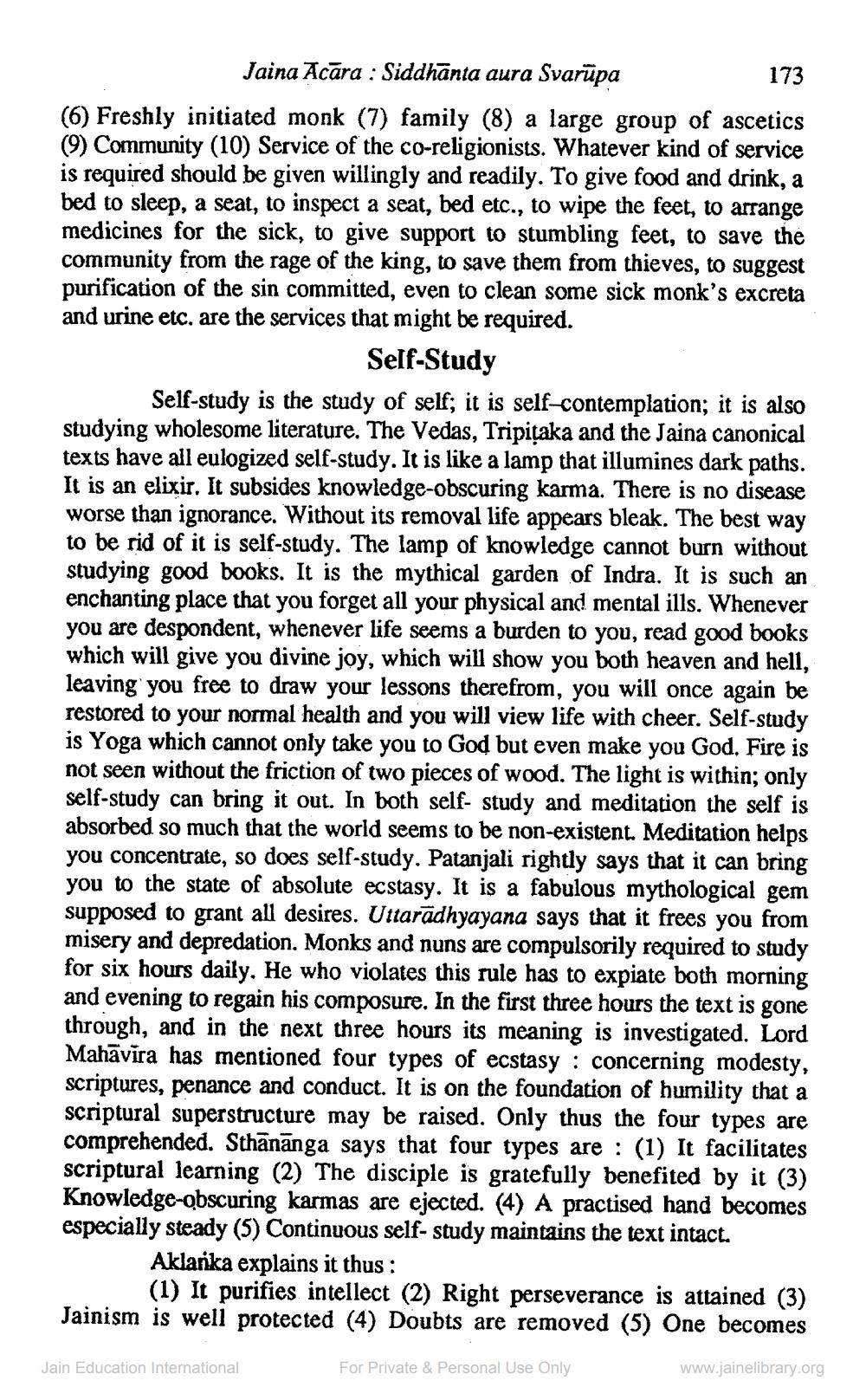________________
Jaina Acara: Siddhanta aura Svarupa
173
(6) Freshly initiated monk (7) family (8) a large group of ascetics (9) Community (10) Service of the co-religionists. Whatever kind of service is required should be given willingly and readily. To give food and drink, a bed to sleep, a seat, to inspect a seat, bed etc., to wipe the feet, to arrange medicines for the sick, to give support to stumbling feet, to save the community from the rage of the king, to save them from thieves, to suggest purification of the sin committed, even to clean some sick monk's excreta and urine etc. are the services that might be required.
Self-Study
Self-study is the study of self; it is self-contemplation; it is also studying wholesome literature. The Vedas, Tripitaka and the Jaina canonical texts have all eulogized self-study. It is like a lamp that illumines dark paths. It is an elixir. It subsides knowledge-obscuring karma. There is no disease worse than ignorance. Without its removal life appears bleak. The best way to be rid of it is self-study. The lamp of knowledge cannot burn without studying good books. It is the mythical garden of Indra. It is such an enchanting place that you forget all your physical and mental ills. Whenever you are despondent, whenever life seems a burden to you, read good books which will give you divine joy, which will show you both heaven and hell, leaving you free to draw your lessons therefrom, you will once again be restored to your normal health and you will view life with cheer. Self-study is Yoga which cannot only take you to God but even make you God. Fire is not seen without the friction of two pieces of wood. The light is within; only self-study can bring it out. In both self- study and meditation the self is absorbed so much that the world seems to be non-existent. Meditation helps you concentrate, so does self-study. Patanjali rightly says that it can bring you to the state of absolute ecstasy. It is a fabulous mythological gem supposed to grant all desires. Uttaradhyayana says that it frees you from misery and depredation. Monks and nuns are compulsorily required to study for six hours daily. He who violates this rule has to expiate both morning and evening to regain his composure. In the first three hours the text is gone through, and in the next three hours its meaning is investigated. Lord Mahavira has mentioned four types of ecstasy concerning modesty, scriptures, penance and conduct. It is on the foundation of humility that a scriptural superstructure may be raised. Only thus the four types are comprehended. Sthānanga says that four types are: (1) It facilitates scriptural learning (2) The disciple is gratefully benefited by it (3) Knowledge-obscuring karmas are ejected. (4) A practised hand becomes especially steady (5) Continuous self-study maintains the text intact.
Aklanka explains it thus:
(1) It purifies intellect (2) Right perseverance is attained (3) Jainism is well protected (4) Doubts are removed (5) One becomes
For Private & Personal Use Only
www.jainelibrary.org
Jain Education International




